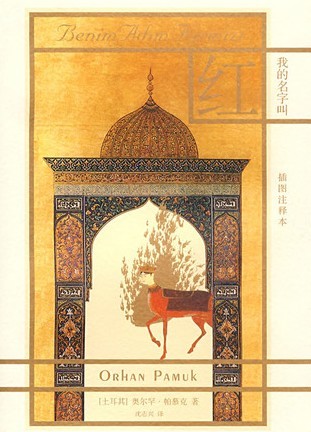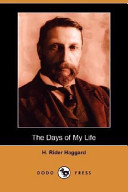my name is red-我的名字叫红-第24章
按键盘上方向键 ← 或 → 可快速上下翻页,按键盘上的 Enter 键可回到本书目录页,按键盘上方向键 ↑ 可回到本页顶部!
————未阅读完?加入书签已便下次继续阅读!
slaughter of hundreds of thousands of people; the killing of the last of the
Caliphs of Islam who’d ruled Baghdad for half a millennium; the rape of
women; the burning of libraries and the destruction of tens of thousands of
volumes as they were thrown into the Tigris。 Two days later; amid the stench
of corpses and cries of death; he watched the flowing waters of the Tigris;
turned red from the ink bleeding out of the books; and he thought about how
all those volumes he’d transcribed in beautiful script; those books that were
now gone; hadn’t in the least served to stop this horrifying massacre and
devastation; and in turn; he swore never to write again。 Furthermore; he was
struck with the desire to express his pain and the disaster he’d witnessed
through painting; which until that day; he’d belittled and deemed an affront
to Allah; and so; making use of the paper he always carried with him; he
depicted what he saw from the top of the minaret。 We owe the happy miracle
of the three…hundred…year renaissance in Islamic illustration following the
Mongol invasion to that element which distinguished it from the artistry of
pagans and Christians; that is; to the truly agonizing depiction of the world
from an elevated Godlike position attained by drawing none other than a
horizon line。 We owe this renaissance to the horizon line; and also to Ibn
Shakir’s going north after the massacre he witnessed—in the direction the
Mongol armies had e from—carrying with him his paintings and the
ambition for illustration in his heart; in brief; we owe much to his learning the
painting techniques of the Chinese masters。 Thereby; it is evident that the
notion of endless time that had rested in the hearts of Arab calligrapher…
scribes for five hundred years would finally manifest itself not in writing; but
in painting。 The proof of this resides in the fact that the illustrations in
manuscripts and volumes that had been torn apart and vanished have passed
into other books and other volumes to survive forever in their revelation of
Allah’s worldly realm。
79
BA
Once upon a time; not so very long ago yet not so recently; everything
imitated everything else; and thus; if not for aging and death; man would’ve
never been the wiser about the passage of time。 Yes; when the worldly realm
was repeatedly presented through the same stories and pictures; as if time did
not flow; Fahir Shah’s small army routed Selahattin Khan’s soldiers—as Salim
of Samarkand’s concise History attests。 After the victorous Fahir Shah captured
Selahattin Khan and tortured him to death; his first task in asserting his
sovereignty; according to custom; was to visit the library and the harem of the
vanquished khan。 In the library; the late Selahattin Khan’s experienced binder
pulled apart the dead shah’s books; and rearranging the pages; began to
assemble new volumes。 His calligraphers replaced the epithet of “Always
Victorious Selahattin Khan” with that of “Victorious Fahir Shah” and his
miniaturists set about replacing the late Selahattin Khan—masterfully
portrayed on the most beautiful of manuscript pages—who was; as of that
moment; starting to fade from people’s memories; with the portrait of the
younger Fahir Shah。 Upon entering the harem; Fahir Shah had no difficulty in
locating the most beautiful woman there; yet instead of forcing himself upon
her; because he was a refined man versed in books and artistry; and resolving
to win her heart; he engaged her in conversation。 Consequently; Neriman
Sultan; the late Selahattin Khan’s belle of beauties; his teary…eyed wife; made
but one request of Fahir Shah: that the illustration of her husband in a version
of the romance Leyla and Mejnun; wherein Leyla was depicted as Neriman
Sultan and Mejnun as Selahattin Khan; not be altered。 In at least this one page;
she maintained; the immortality that her husband had tried to attain over the
years through books should not be denied。 The victorious Fahir Shah bravely
granted this simple request and his masters of the book left that one picture
alone。 Thereby; Neriman and Fahir immediately made love and within a short
period; forgetting the horrors of the past; came to truly love each other。 Still;
Fahir Shah could not forget that picture in Leyla and Mejnun。 Nay; it wasn’t
jealousy that made him uneasy or that his wife was portrayed with her old
husband。 What gnawed at him was this: Since he wasn’t painted in the old
legend in that splendid book; he wouldn’t be able to join the ranks of the
immortals with his wife。 This worm of doubt ate at Fahir Shah for five years;
and at the end of a blissful night of copious lovemaking with Neriman;
candlestick in hand; he entered the library like a mon thief; opened the
volume of Leyla and Mejnun; and in place of the face of Neriman’s late
husband; drew his own。 Like many khans who had a love for illustrating and
painting; however; he was an amateur artist and couldn’t portray himself very
80
well。 In the morning; when his librarian opened the book on a suspicion of
tampering and beheld another figure in place of the late Selahattin Khan; next
to Neriman…faced Leyla; rather than identifying it as Fahir Shah; he announced
that it was Fahir Shah’s archenemy; the young and handsome Abdullah Shah。
This gossip provoked Fahir Shah’s soldiers and emboldened Abdullah Shah; the
young and aggressive new ruler of the neighboring country; who;
subsequently; in his first campaign; defeated; captured and killed Fahir Shah;
established his own sovereignty over his enemy’s library and harem and
became the new husband of the eternally beautiful Neriman Sultan。
DJIM
The miniaturists of Istanbul recount the legend of Tall Mehmet—known as
Muhammad Khorasani in Persia—mostly as an example of long life and
blindness。 However; the legend of Tall Mehmet is essentially a parable of
painting and time。 The primary distinction of this master; who; having begun
his apprenticeship at the age of nine; illustrated for more or less 110 years
without going blind; was his lack of distinction。 I’m not being witty here; but
expressing my sincere admiration。 Tall Mehmet drew everything; as everyone
else did; in the style of the great masters of old; but even more so; and for this
reason; he was the greatest of all masters。 His humbleness and plete
devotion to illustration and painting; which he deemed a service to Allah; set
him above both the disputes within the book…arts workshops where he worked
and the ambition to bee head miniaturist; though he was of appropriate
age and talent。 As a miniaturist; for 110 years; he patiently rendered every
trivial detail: grass drawn to fill up the edges of the page; thousands of leaves;
curly wisping clouds; horse manes of short repetitive strokes; brick walls;
never…ending wall ornamentation and the slant…eyed; delicate…chinned tens of
thousands of faces that were each an imitation of one another。 Tall Mehmet
was quite content and reserved and he never presumed to distinguish himself
or insisted about style or individuality。 He considered whichever khan’s or
prince’s workshop he happened to be working in at the time his house and
regarded himself as but a fixture in that home。 As khans and shahs strangled
one another and miniaturists moved from city to city like the women of the
harem to assemble under the auspices of new masters; the style of the new
book…arts workshop would first be defined in the leaves Tall Mehmet drew; in
his grass; in the curves of his ro
![(伪犯罪心理同人)[伪犯罪心理]gimmick game人封面](http://www.8kbook.com/cover/2/2722.jpg)
![[秘密(世界上最神奇的潜能开发训练)][1].(美)华莱士·d.沃特斯&封面](http://www.8kbook.com/cover/noimg.jpg)



